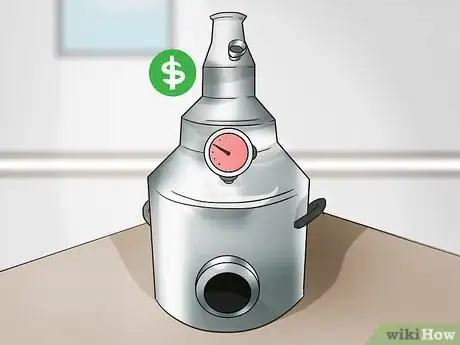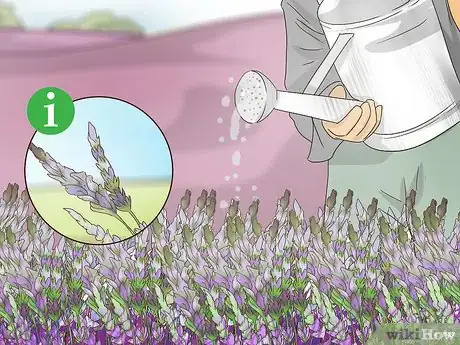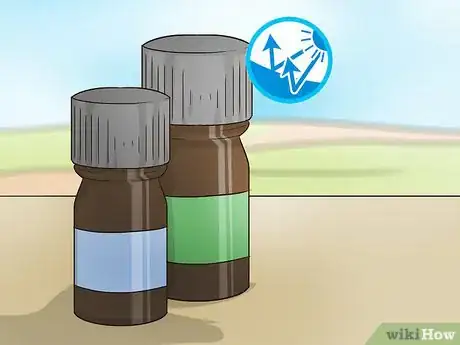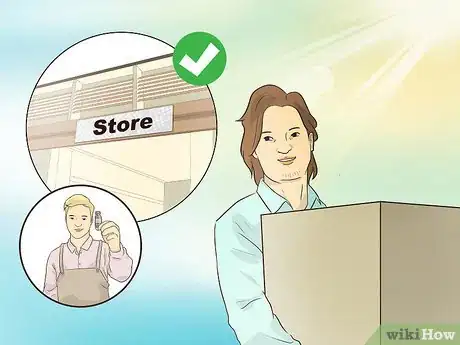This article was co-authored by Michelle Arbeau. Michelle Arbeau is a Numerologist & Life Strategist, and the CEO of Authentic You Media and Eleven Eleven Productions. She’s based in West Hollywood, California. With over 20 years of experience, she specializes in numerology, mediumship, and business advice. In 2015, Best Businesses named her the Best of West Hollywood Celebrity Numerologist, and she’s been hailed as the #1 Numerologist in the World and the #1 Celebrity Numerologist.
There are 15 references cited in this article, which can be found at the bottom of the page.
This article has been viewed 74,440 times.
As aromatherapy grows more popular, starting an essential oil business can be a creative and rewarding endeavour! If you’re new to running a business, you might have a ton of questions but we’re here to help! Set up a company to make and sell your own oils, or purchase them wholesale to resell. Create an attractive website and various social media profiles, which will help you promote and grow your business. Sell your essential oils online, at community events, or in stores.
Steps
Choose a name for your essential oil company.
-
Choose a name that stands out but conveys you’re selling essential oils. An important step in establishing your company is coming up with a business name. In North America you are not required to apply to trademark your name, but it is a good idea if you want it to be unique.[1] X Research source
- If you live in the U.S. and want to ensure that no other businesses in your area have the same name, search the United States Patent and Trademark Office's database at http://tmsearch.uspto.gov/bin/gate.exe?f=tess&state=4805:am2gjg.1.1.
Apply for a city business license online or by mail.
-
In most states, you can file for a license online or print a form to mail in. To set up a business license for your essential oil company, visit your state's official website. Pay any required fees, which will vary by state.[2] X Research source
- For instance, in Boston you will have to submit a completed business certificate form and submit it in person or by mail, along with a $65 filing fee.[3] X Research source
Incorporate your essential oil business.
-
Obtain the correct paperwork online or from a local government office. To protect yourself from personal liability with regard to your business’ debts and agreements, incorporate the company. Call or email your state office to get specific instructions for how to apply for incorporation.[4] X Research source
- For instance, if you get into a contract dispute with a supplier, you will not be personally liable for any fees or charges owed to them by your company.
- It is easiest to file for incorporation through a lawyer, but you can save money by using books and software to do it yourself.
Calculate your start-up costs.
-
Always overestimate costs to ensure you budget for all contingencies. To calculate your start-up costs, take into account all of the one-time expenses you will incur when starting your essential oil business. Start-up costs, which will tell you the minimum amount of capital you will need to raise or borrow to open your business, could include:[5] X Research source
- Registration or license fees
- Legal and professional fees
- Purchase of equipment to make and bottle essential oils
- Advertising and promotion for your company's grand opening
- Starting inventory of essential oils
- Initial fees for your website and e-commerce platform
Work out your recurring operating costs.
-
Calculate your monthly expenses to see how much your company needs to run. These operating expenses should be overestimated to make sure that you budget sufficiently for the future. Recurring operating costs will include:[6] X Research source
- Supplies and stock of essential oils
- Rent and utilities, if you are opening a physical store
- Monthly website and e-commerce store fees
- Salaries, if you are hiring employees
- Contingency costs
Study other essential oil businesses to understand the market.
-
Take note of their pricing and most popular products. In order to structure your business and set prices, observe other successful essential oil businesses online or in your area. Draw inspiration from these companies and identify any holes in the market that your own essential oil business can fill.[7] X Research source
- For instance, you might notice that the essential oil companies you study do not sell eucalyptus oil, which could be an opportunity to fill a hole in the market.
Observe the advertising techniques of your competitors.
-
Compare who they’re targeting and where they’re advertising. Study competitor websites and their search engine rankings to see how you should target your advertising approach. You should also check paid search results for essential oil companies to see if it's a worthwhile investment for your company. Look for your competitors on social media platforms like Facebook, Instagram, and Twitter to see how they are marketing themselves.[8] X Research source
- You can also read online reviews of other essential oil companies to see what customers like and dislike about their products and service.
Purchase an essential oil distiller.
-
Look for a model with a 20-liter capacity or more. Large essential oil distiller machines are available for purchase online. If you want to distill different kinds of essential oils at the same time, purchase multiple distillers.[9] X Research source
- Distillers range in price, size, and quality, but you will likely pay at least $500 for the equipment.
Set up your distiller in a designated production area.
-
Choose a safe and spacious environment to set up your essential oil distiller. This area should be cool and free of flammable materials. Keep in mind that you will need a burner or stove for the distilling process.
- If you are producing essential oils at home, a garage or basement would be the best location for this set-up.
Choose what essential oils you will make for your product line.
-
Essential oils can be derived form a variety of garden herbs, spices, and flowers. Decide what scents you want to be a part of your product line and start looking for suppliers at local markets or farms. You can also choose to make unique blends of different ingredients.[10] X Research source
- For instance, you can choose to focus on relaxing scents like lavender and chamomile.
- Try to find a regular supplier for the main ingredients you use to ensure quality and consistent prices.
Grow your own essential oil ingredients to keep production costs low.
-
Be sure to grow more than what you need to produce essential oils. To grow your own ingredients year round, start an indoor herb garden that will be safe from the elements. You can also plant flowers in an outdoor garden for beautifully scented ingredients when the weather allows.
Bottle your essential oils in colored glass bottles.
-
Colored glass protects essential oils from UV rays. Glass will resist leaks much better than plastic bottles. Order small colored glass bottles from a supplier online to hold your essential oils. Be sure to order sturdy bottles, which will not break easily during transport or shipping.[11] X Research source
- Essential oils are usually packaged in small, 5–10 millilitres (0.17–0.34 fl oz) bottles.
Choose how the oil should be dispensed from the bottle.
-
Decide if you want your bottles to have droppers or pipettes to disperse the oil. Be sure that the caps on the bottles still close securely, as an opening or ill-fitting cap could result in the oil evaporating. If you wish, omit any sort of dispensing tool so customers can pour the oil directly from the bottle. [12] X Research source
Buy oils from a supplier if you don’t want to make them.
-
You can get essential oils from a wholesale supplier to resell online or in stores. Find a supplier that will sell bulk orders that suit your budget and storage capacity. As a general rule, wholesale orders will have to add up to at least $3,000.[13] X Research source
- If you choose to re-sell essential oils, appeal to customers by offering a wide selection of them.
Build a website for your company.
-
Websites are a great way to advertise and sell your essential oils. Your company's website should include background information about the business, as well as your contact information. Include a detailed listing of all of your products complete with photos.
- To optimize your business, you should start a website even if you are opening a physical storefront to sell your essential oils.
Choose an e-commerce platform to sell your oils online.
-
Opt for a popular platform that does not charge a monthly or annual fee. To be able to sell products through your website, you will need to choose an e-commerce platform to host your online store. Sign up online and follow the directions to get your store up and running.[14] X Research source
- Shopify is an example of a popular e-commerce platform that does not charge monthly or annual fees.
- Link directly to your store on your website.
Make social media accounts for your store.
-
Social media is the best way to advertise your business for free. Open accounts on Facebook, Twitter , and Instagram to promote your products and gain followers. Ask your friends and family to share your posts to gain visibility and build a larger client base.[15] X Research source
- You can a share pictures of new essential oils that your company starts manufacturing, or post pictures of different ways your customers can use essential oils.
Sell your oils at community events to build a client base.
-
Festivals, expositions, and other events can provide great opportunities. Take your oils to a local event to advertise your business, talk up your products, and get new customers. Sign up as a vendor at such events and bring essential oils to sell, as well as sample bottles for new customers to test out. Encourage people to visit your website or social media pages for more information.[16] X Research source
- To leave your mark, print business cards or brochures about your essential oils to distribute at these events.
Sell to retail stores that carry similar products.
-
You can reach a broader market if you put your products in other stores. Research stores that carry essential oils or other natural products and contact them about the possibility of selling your oils. If possible, find out the name of the store buyer or department manager to make sure that you deal with them directly, which will up your chances of making a deal. Once a retailer agrees to carry your product line, accept their payment by credit card or give them 30 days to send a check for the order.[17] X Research source
- As a general rule, you should charge the retailer double your cost for the items being sold.
Open your own store if you have a very large product line.
-
Make sure you have the money, stock, and demand for a physical storefront. If you succeed at selling your essential oils online or at events, invest in opening your own store. Hire employees who can learn about and promote each product of your essential oil line to make sales. [18] X Research source
- If you open a store, you will have to factor in regular expenses such as rent, utilities, employee salaries, renovation, and store maintenance.
- Invest in decorating your store and creating unique displays to attract new customers.
You Might Also Like








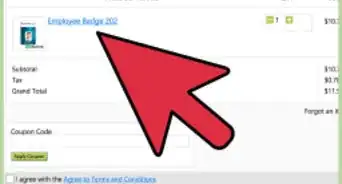


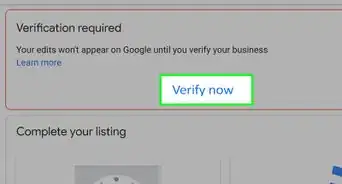


References
- ↑ https://www.inc.com/guides/2010/06/choose-the-best-name-for-your-business.html
- ↑ https://www.inc.com/jeff-haden/how-to-start-a-small-business-in-a-few-hours.html
- ↑ https://www.boston.gov/departments/city-clerk/how-apply-business-certificate
- ↑ https://www.entrepreneur.com/article/77730
- ↑ https://www.business.qld.gov.au/starting-business/costs-finance-banking/calculating-costs
- ↑ https://www.business.qld.gov.au/starting-business/costs-finance-banking/calculating-costs
- ↑ http://business.time.com/2012/08/16/learn-from-your-competitors/
- ↑ http://business.time.com/2012/08/16/learn-from-your-competitors/
- ↑ https://www.youtube.com/watch?v=RR9vKd_Auz4&feature=youtu.be&t=13
- ↑ https://www.savvyhomemade.com/make-your-own-essential-oil/
- ↑ https://www.bottlestore.com/blog/guide-to-bottling-and-selling-your-own-essential-oils/
- ↑ https://www.bottlestore.com/blog/guide-to-bottling-and-selling-your-own-essential-oils
- ↑ https://www.entrepreneur.com/article/174010
- ↑ https://www.nerdmarketing.com/best-ecommerce-platform/
- ↑ https://www.entrepreneur.com/article/233687
- ↑ https://www.bottlestore.com/blog/guide-to-bottling-and-selling-your-own-essential-oils/
- ↑ https://www.themogulmom.com/2011/05/get-your-product-in-stores/
- ↑ https://www.entrepreneur.com/article/75912
About This Article







